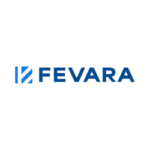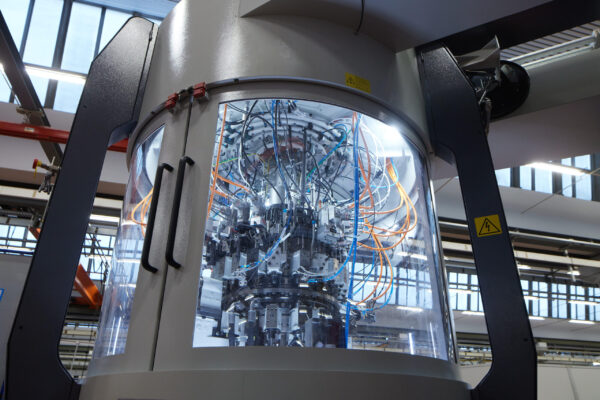Carr’s UK agricultural activities (which include all its associates and JVs) encompass a broad range of services for farmers and other rural dwellers. This is complemented by an international business manufacturing and selling high added-value feed blocks in the US, UK, mainland Europe, the Middle East, New Zealand and South America. Carr’s range of agricultural activities provides a level of protection against negative influences affecting one part of the agricultural sector. Within the Agriculture division, Carr’s frequently opts to form JVs with established industry partners in regions outside the UK, as this gives an accelerated market entry and reduces the risk associated with entering new territories.
Feed supplements: Adding value through IP
Feed blocks: Demonstrable financial return for farmers
Carr’s branded feed blocks address the requirements of more sophisticated farming practices where the calorific, protein, mineral and vitamin content of forage and feed are precisely controlled to maximise the return on investment. Many of the feed blocks are formulated to promote increased utilisation of forage, thus maximising the economic performance of the animal. Other types improve the health of livestock. For example, research carried out at Kansas State University showed that supplementing the diet of yearling Angus bulls with FlaxLic, which contains high levels of naturally occurring omega-3 fatty acids, raised average daily weight gain from 2.93lb for the control group to 3.27lb (12%). The ability to quantify the economic benefit for farmers helps overcome their innate conservatism and supports a high margin.
The patented production process, which was purchased from Pfizer in 1993, means the top layer absorbs moisture from the atmosphere and is therefore removed when livestock lick it but the underlying layers are too hard to be removed. This regulates the amount of the block that can be consumed by livestock each day and thus the amount of nutrients taken up. The feed block formulation is adjusted for different animal species and specific life-stages such as pre-calving, post-calving or finishing lambs. Feed blocks are made in the UK, Germany and North America and sold throughout the UK, Europe, the Middle East, North America, New Zealand and in limited volumes in South America. Around 152,000 tonnes of feed blocks are sold worldwide each year.
Completing feed block production platform in the US
The group’s feed block activity is growing rapidly. In June 2013, the Western Feed Supplements plant in Nevada was acquired to gain access to the important Californian dairy market, which could not be accessed economically from the group’s existing plants in Oklahoma, South Dakota and Tennessee. A new low-moisture feed block plant at the Tennessee site, where there is already a high-moisture feed block facility, became fully operational in January 2018. This facility enables the group to sell low-moisture feed blocks to farmers in the eastern states of the US, which cannot be accessed from existing operations.
Development of feed block sales in new geographies
Having created a footprint in the US with sufficient scale and geographic reach, Carr’s intends to open feed block plants in other regions where cattle are reared on forage-based systems. Management continues to ship feed blocks to New Zealand and has set up a direct sales operation distributing to farmers through key merchants to drive sales, rather than relying on a distribution partner as previously. This modified approach has already enabled the group to secure supply agreements with several domestic agricultural merchants. Once sales volumes are sufficient, management intends to construct a production facility in the country. The group started to supply product to distributors in South America during FY18 and made its first commercial sales in the region, albeit at low levels. Trials at research institutes in Brazil continue to make good progress, with data from the initial trials currently being collated while other experiments are ongoing. Such trials are an essential precursor to any marketing campaign, as farmers want to see research that has been carried out under local conditions before considering a purchase of a new product. Our estimates assume that any extensive penetration of these new geographic markets will be beyond the period covered by our forecasts.
Animax acquisition enlarges supplement portfolio
The acquisition of Animax in September 2018 broadens the group’s existing range of animal health products and supplements, enabling farmers to administer trace elements via boluses rather than licks. Together with sister company Clinimax, a manufacturer of patented specialist disinfectant products for the medical industry, Animax generated £0.6m EBITDA for the year ended November 2017. The total consideration is up to £8.5m, payable in cash. Management expects that the transaction will be earnings enhancing in FY19.
More professional farming methodologies promote demand for feed supplements
Demand for feed blocks in the US is primarily driven by beef cattle farmers and is linked to weather conditions, consumer demand for quality beef and cattle prices. Management is seeking to reduce the dependence on the beef industry by promoting products tailored for dairy cattle and horses in the US. Demand for feed blocks in the UK is primarily from sheep farmers and is linked to weather conditions at lambing time. The division is reducing volume seasonality by promoting products for use during the summer months, such as licks that reduce hornfly larvae infestation. Demand for feed blocks in continental Europe and New Zealand is primarily from dairy farmers and linked to the adoption of more sophisticated feeding regimens that deliver increased output from the same number of animals. Demand for supplements providing trace elements is likely to increase if there is a ban on routinely feeding animals antibiotics, as farmers will potentially turn to nutritional supplements to boost the resilience of their livestock to infection.
Limited competition for feed supplements
There is limited competition for low-moisture feed blocks in the UK, South America and New Zealand. The latter two are relatively new markets where farmers are beginning to adopt the more sophisticated feed regimes common in the US. Ridley, which was acquired by animal nutrition and health specialist Alltech in 2015, is the North American market leader, with an estimated 40% share, compared with Carr’s 25%. In the US, Carr’s competes through branding, with its iconic ‘Feed in a Drum’ and SmartLic returnable steel packaging.
Third-largest animal feed manufacturer in the UK
Carr’s manufactures around 500,000 tonnes of compound and blended feeds each year. These are sold to sheep, dairy and beef cattle farmers in the North of England, Scotland, South Wales and the Midlands. The feed is manufactured by an associate company, Carrs Billington, at compound feed mills in Staffordshire, Lancashire and Cumbria, and at blends plants in Kirkbride, Cumbria, Lancaster and Staffordshire.
Carr’s is the third-largest manufacturer in the UK behind ForFarmers and NWF Group. There are numerous small feed suppliers in the area served by Carr’s, some of which purchase feed from Carr’s. Underlying demand for dairy feed in the UK is linked to the volume of milk produced, which was 0.2% higher year-on-year between April and mid-November (source: Agriculture and Horticulture Development Board, AHDB). The AHDB expects that volumes will come under pressure as we move through the winter period, but the timing and size of the downturn will depend on feed availability and costs. The number of dairy farms and dairy cattle has declined over the last decade, as the industry moves to larger herds and more intensive rearing regimens. This trend favours a more technical approach to feeding cattle, which benefits larger operations such as Carr’s that can offer agronomy services and specialised feed blocks as well as feed. This technical approach is important whether farmgate milk prices are high or low, as farmers are keen to investigate changes to feed regimens that can help improve either yield or profitability, depending on the economic environment. Demand for feed varies from year to year depending on weather conditions. Carr’s is less dependent on demand for dairy feed than NWF Group because it also sells substantial volumes of sheep and beef cattle feed.
Retail outlets dedicated to farmers and broader rural community
Carr’s operates a chain of 43 retail outlets in Scotland, the North of England, Staffordshire, Derbyshire and South Wales, including seven machinery branches. These stores specialise in products for farmers and the broader rural community including animal health products, agricultural sundries such as fencing and farm consumables, pet and equine products and rural clothing. The products offered vary between stores to reflect the type of farming in the area. Farmers are typically conservative and cautious about purchasing from brand-new outlets. Carr’s has therefore expanded its retail operations predominantly by purchasing smaller agricultural suppliers with a limited retail offer but a solid customer base such as Pearson Farm Supplies. Post-acquisition it then broadens the product portfolio to appeal to both farmers and other rural dwellers and expands the retail space, relocating the premises if necessary.
A high proportion of sales at Carr’s Country Stores relates to non-discretionary farming expenditure, so underlying demand, especially for farm machinery, is linked to farm incomes. Carr’s has been able to grow sales independently of this by broadening the product offer to include higher-margin animal healthcare products. Seven of the outlets offer farm machinery, making Carr’s one of the largest Massey Ferguson distributors in the UK. The retail outlets are typically situated at places convenient for farmers such as stock auction markets, rather than on conventional retail parks such as stores operated by Countrywide Farmers. This difference in focus may partly explain why Carr’s Country Stores are prospering, in contrast to Countrywide Farmers, which went into administration in March 2018, selling eight of its 48 stores to Wynnstay Group.
Fuel distribution complements retail offer to farmers and rural dwellers
Carr’s operates eight fuel distribution depots, which service rural premises in Dumfries, Galloway, Cumbria and Lancashire. At around 120m litres per year, the operation is significantly smaller than that of NWF Group (543m litres in FY18), which is the third-largest supplier in the UK. However, unlike NWF, Carr’s is not intending to become a national player in the sector, but views this as a service within its agricultural supply offer. The operation is highly complementary to the feed and machinery sales operations, providing significant opportunities for cross-selling. Demand for heating oil is dependent on weather conditions. This dependence is reduced by selling tractor fuel as well. Demand for tractor fuel is typically higher over the summer, when demand for heating fuel is weaker.




















